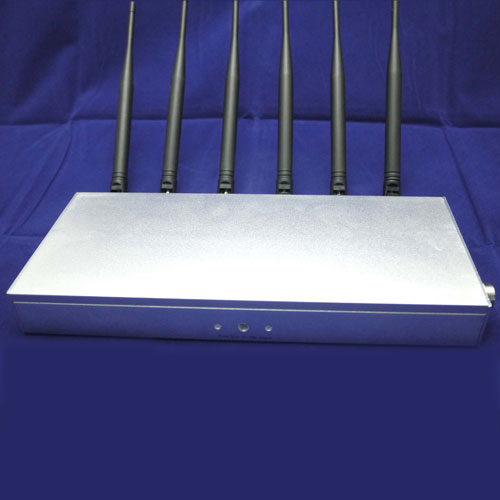Wi-Fi is the most commonly used wireless signaling technology. Wireless signals can be accessed in many mobile devices, which are specially designed to use more wifi products because wifi coverage brings more convenience to people. The more universal the WiFi, the greater the harm, so the anti-interference tool wifi jammer came into being. WiFi can be abused, and often it is. Getting and using a signal jammer can solve all your problems. Whether you need to regain control of your life, workplace or kids, blocking WiFi can give you peace of mind. A WiFi signal jammer is any device that blocks the signal of an electronic device.
As the number of wireless wifi devices in the environment continues to increase, wifi signal blocker becomes an issue affecting connection stability and overall performance, so it is important to understand what causes wifi frequency jammer so that you can effectively reduce it and enhance wireless performance.
Wi-Fi technology can use either 2.4 GHz or 5.0 GHz transmission bandwidth. Bluetooth only uses 2.4 GHz transmission bandwidth.

Since this bandwidth is also shared by many home and office devices simultaneously, some devices may need to be rearranged to reduce interference from competing devices.
Some signs that you may be experiencing interference:
Intermittent wireless connection
The Bluetooth devices cannot be paired correctly
A device slows down when in use
Decreased wireless signal strength within a normal distance of the router
Slower download and upload speeds
If you can effectively find the cause and take action, it is possible to reduce disruption to the environment.
To identify individual devices in your environment using 2.4 GHz and 5.0 GHz bandwidth, you need to check the specifications of each electronic device. Note that while these devices may not have bandwidth listed, if they are listed as "Bluetooth", "Wi-Fi" or "Wireless" devices, they are using these radio frequencies. Here are some common devices that can cause interference:
Microwave oven
cordless phone
tablet
direct satellite service
Certain external power sources such as wires, rails, and power stations
Wi-Fi camera
baby monitor
two-way radio
The construction materials used in your building can also cause wifi signal jamming. The following diagram is helpful for laying out routers and devices:
In addition to competing for signal interference, other hardware and even elements of the natural environment can interfere with signal reception/transmission. Some common and less common environmental factors to consider are as follows:
Electrical load center (fuse box or wire conduit)
Sheet metal/sheet metal in roofs or walls, including exterior walls
stucco slats in pine
Sunspot/Solar Activity
To reduce wifi interference with your wifi signal, make sure to reduce the number of devices in your area. Alternatively, you can try another wireless channel with less traffic. To increase wireless bandwidth, you need to be aware of interference issues when laying out your workspace.
Related Articles
Do wifi jammers cause signal interference to wired and wireless networks?
Need to buy high-power WiFi jammer
Are you still looking for the best wifi jammer?
Will wifi jammers interfere with campus broadcast systems?
A detailed explanation of different types of wifi jammer







